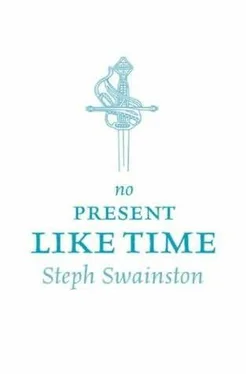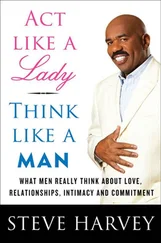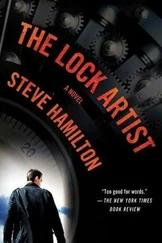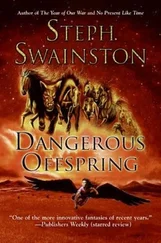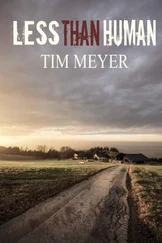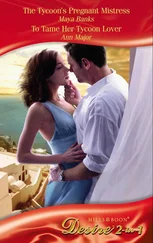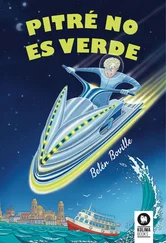When Gio’s rabble caught sight of Mist’s vanguard, rebels in ones and twos began to melt away from his column, down the alleys and into the streets of the grid. They turned left and right along the intersecting roads like counters in a board game. I decided that their movements were too random to be tactical, even before I saw them start smashing shop shutters and grabbing whatever was inside.
Mist’s fyrd and Gio’s horde stopped with twenty meters between them. There was a second’s silence in which Gio, shield on his arm, walked forward of his line and scanned the people opposing him, looking for Wrenn.
The Awndyn Fyrd captain called, “Crossbowmen! Span. Latch. Loose!” They shot straight into the rebel front at short range, aiming at the fencing masters, knowing they were the most dangerous. The metal Insect-killing bolts cut past shop canopies and statues, burying themselves in men’s faces, chests and bellies. I saw black bolt points project from their backs.
The crossbowmen’s partners stepped forward with a shout, raised and slammed their green and white shields into a wall, hustling into position across the road. Behind the shields, the crossbowmen began to reload.
Gio’s men waited in horror for the next barrage. Heads bobbed up and down as some men split off down the side streets but most were trapped in the center.
The shields were lowered, crossbows leveled. “Latch! Loose!” Another barrage flew at Gio’s front line. The last of the fencing masters fell, lifeless or mortally wounded. Gio peered from behind his shield; swung his arm. “Forward! Break the wall! Bear down the shields!”
A wave of three hundred men together started running. The front of the column seemed to flake off, as faster and faster they closed the gap. They jumped high, crashed into the shields at full tilt, hitting them with their shoulders and forcing them down. Their swords thrust over the tops, into the necks and faces of the bearers.
The crossbowmen slung their bows into holsters on their backs, drew their swords and surged forward against the rebels. The confused mass began to shove up and down the street.
I saw that Ata’s spearmen were trapped toward the rear of her host. Surely that was a mistake-wouldn’t they be better than the crossbows? Crossbowmen had served Ata well five years ago; now she was relying on them too much. The shield wall was perfect but it should be backed by spears. The fyrd are simply following their usual procedure: Insect-fighting tactics. They’re wrong but even Ata hasn’t noticed the discrepancy.
Both the fyrd and the insurgents tried to outflank each other. From above I watched the side streets filling. As the melee widened, the columns in the boulevard shortened, with Wrenn and Gio in the exact center.
I called to the fyrd who were exploring the alleys, and led them down the right routes to ambush the rebels, who were more used to fighting in side streets. I landed and directed a group; we surprised five of Gio’s men before they could rejoin the main column, and killed them all.
I returned to the air, where I could easily distinguish Mist’s bodyguards. I occasionally glimpsed her face but she no longer had time to look up at me. The press was so intense, she held her curved Wrought sword with the convex arc uppermost to thrust rather than slice. Her voice carried-she screamed commands to surround Gio and disarm him. Whenever he could, Gio yelled at his rebels to close in on Mist.
In Lowespass, women soldiers have always successfully fought Insects. The culls follow procedures; the women help each other and men sometimes back them up. The difference in strength was not important when six or seven infantry recruits can tackle an Insect together, or women can join the cavalry and ride destriers. But in this crush they were fighting one-on-one against men, and I gravely feared for them.
Capharnai families peeked from the windows of their houses above the shops all along the street. They were stranded in their homes, witnessing a scene they couldn’t hope to understand. They saw the heads of men wrestling and stabbing along the center line, and behind them, filling the street above and below, a pack of foreigners in strange clothes facing each other, putting pressure on the breathless crush. The strangers were so eager to push forward to the fight that they trampled dead bodies. At the end of the street, flames piled up from the civic center and smoke boiled like spit in lamp oil. The Capharnai neighbors looked helpless, not knowing what to do. I shouted, “Stay inside! Don’t get involved-they fight each other, not Trisians!”
They saw their own shops vandalized below them. Their faces disappeared from the windows as they began barricading themselves into their upper rooms.
Iglanced back; the library was now a roofless shell, the floors were falling through and just the façade was left. Flames leapt in the windows surrounded by blackened stonework-it looked like an animated skeleton.
Coruscating sparks and dull fragile ash dropped on us. I beat my wings to dislodge flakes from the feathers, thinking: the town is being covered in burned knowledge.
Gio was looking for Wrenn, carving his own men aside. I landed on the nearest roof to watch, searching the alleys below for a crossbow to pick up. Gio, wild-eyed, saw Mist’s bodyguards and Wrenn beside them in an area of calm because no fighter would engage with him.
Gio raised his rapier and saluted. “Well, look if it isn’t the novice. ”
“Good morning,” smiled Wrenn.
Gio snarled, “You could have chosen better last words.”
First-blood fencing in the amphitheater was just an entertainment; no rules apply in a duel to the death. They watched each other with cool anticipation; Capharnaum didn’t exist for them. They were in a world of two people, challenger and challenged.
There are no words in that world. I know, because I have been there.
Gio swept his rapier down in the rage cut. “You stole my name,” he said. “I’ll be Serein again. I am good enough. I Challenge you, Serein Wrenn.”
Wrenn leveled his blade. “Just run onto this and save me the effort.”
I took off and climbed above them through the deafening battle’s noise.
They dropped the pretense of faking other styles to conceal their own. They flew at each other eager for blood. Gio rushed to chop at Wrenn; at the same time a bystander tried to catch him but Wrenn smashed his teeth with the rapier pommel.
Wrenn lunged at Gio, reprised. Gio swiped it aside with a blow that would have shattered a lesser blade than the 1969 Sword. I thought: How long can they keep this up? But I knew the answer-at least four hours.
Gio pointed his rapier, its lanyard loose around his wrist. He lunged to Wrenn’s dagger side. Wrenn swept his rapier across-clash!-disengaged and cut down aiming for the sensitive bone of Gio’s shin.
Gio jumped on the spot then attacked. Wrenn parried, riposted, enveloped Gio’s blade in quatre, made as if to beat him on the arm and tried to stab him in the forehead. Gio spun away in a move that took me two years to learn. His thigh boots slipped on the pavement. He was trying to predict Wrenn’s actions four or five moves in advance.
In a split second Wrenn slid his rapier tip through Gio’s swept hilt, sliced the skin off his knuckles, withdrew the blade. Gio’s grip became slippery on the freely running blood. He hid his sword hand with his dagger, so Wrenn couldn’t see to predict the direction of the next blow.
Their motions were wide; their heads ducked to avoid being cut in the eyes, watching with the faster speed of their peripheral vision. Their flexed sword arms were close to the body for strength. They hacked at the nearest enemies whenever they had a chance and the melee backed away from them, leaving them in a clear space. The fighting was spreading up and down the street and fragmenting. Tussling groups of men dispersed down the side alleys. The densest part of the fighting eddied around Ata’s bodyguard; spearmen behind, rebels ahead. Five sailors linked arms, trying to preserve a space around her so she could breathe.
Читать дальше
